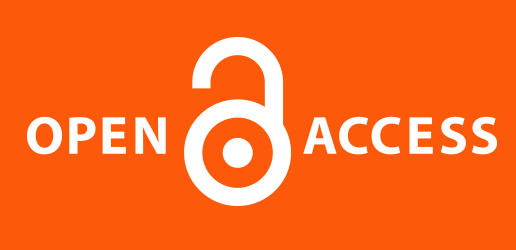
The construction of ideological and political education in curriculum under the background of new liberal arts: significance, concept, and practical path
摘要
The coordinated promotion of new liberal arts construction and curriculum ideological and political education is reshaping the educational pattern of higher education. Research focuses on the deep integration mechanism of value guidance and knowledge transmission, analyzes the implementation path of interdisciplinary collaborative education, and explores the transformation of student-centered teaching paradigm. Through practical strategies such as restructuring the curriculum structure, innovating teaching methods, optimizing teacher allocation, and improving the evaluation system, we have promoted the formation of a new type of education model that integrates professional education and ideological and political education, providing theoretical support and practical solutions for cultivating humanities talents with patriotism in the new era.
Introduction
The evolution of the global landscape and the wave of technological revolution have put forward new era propositions for humanities and social science education, and the construction of new humanities has become an important strategic direction for higher education reform. As a key link in implementing the fundamental task of cultivating morality and talents, the deep integration of ideological and political education in the curriculum with the new liberal arts has special practical significance. The current educational practice is facing practical challenges such as scattered value guidance, the need to break through disciplinary barriers, and the need to improve the effectiveness of education. It is urgent to construct a systematic framework for implementing ideological and political education in the curriculum and attempt to build a new mode of education that conforms to the characteristics of the new liberal arts.
1 The Significance of Curriculum Ideological and Political Construction under the Background of New Liberal Arts
1.1 Promote innovation in liberal arts education and enhance the practical care of liberal arts education[1]
The construction of new liberal arts has put forward breakthrough requirements for the traditional liberal arts education model, with the core being to promote the deep integration of knowledge systems with the needs of the times. Traditional liberal arts education has long had problems such as rigid disciplinary barriers and insufficient practical guidance, making it difficult to effectively respond to the complex contradictions arising from the social transformation period. The integration of ideological and political education into the curriculum provides a value coordinate for the reform of liberal arts education. By infiltrating Marxist positions, viewpoints, and methods into professional teaching, it promotes the breakthrough of the knowledge system of humanities and social sciences beyond the limitations of "academic for academic purposes". This reform is not only reflected in the updating of teaching content, but also in the reconstruction of the logical framework of knowledge transmission - transforming ideological and political elements such as socialist core values and excellent traditional Chinese culture into the internal dimensions of professional courses. Taking sociology courses as an example, analyzing the value orientation of the policy of common prosperity while teaching social stratification theory not only maintains academic depth but also provides practical explanatory power for theoretical knowledge. This innovative path makes liberal arts education truly a bridge connecting academic research and social practice, enhancing the resonance between disciplinary development and social progress.
1.2 Cultivate talents with patriotism and enhance students' critical thinking and value judgment abilities[2]
In the new era of talent cultivation, it is necessary to break through the dilemma of separating professional abilities and value literacy, and ideological and political education in the curriculum plays a crucial role as a link in this process. By integrating ideological and political elements such as the development process of the country and the mission of national rejuvenation into professional teaching, students can be guided to establish an inherent connection between knowledge learning and the destiny of the country. This educational model is different from simple political preaching, but through teaching methods such as case studies and comparative analysis, students naturally form value recognition in the process of mastering professional knowledge. For example, in the course of Journalism and Communication, comparing the reporting frameworks of Chinese and foreign media in major events can not only train students' media analysis skills, but also deepen their understanding of the socialist news concept with Chinese characteristics. This teaching method essentially constructs a three in one training mechanism of "knowledge ability values", enabling students to gradually form a thinking pattern based on local and global perspectives while improving their professional qualities, and ultimately grow into composite talents who have both international perspectives and can adhere to their values.
1.3 Responding to national strategic needs
In the unprecedented major changes, the strategic value of liberal arts education has become increasingly prominent. The construction of ideological and political education in the curriculum directly serves to enhance the country's cultural soft power and maintain ideological security, which is an important characteristic that distinguishes the new liberal arts from traditional liberal arts. By integrating the "Four Confidences" education into professional courses, it can systematically strengthen young students' theoretical and emotional identification with the path of socialism with Chinese characteristics. This type of educational innovation not only meets the new requirements for talent cultivation in the "Double First Class" construction, but also is a strategic measure to cope with international discourse competition[3]. Taking the discipline of international relations as an example, incorporating the concept of a community with a shared future for mankind into the teaching of global governance theory not only maintains academic forefront, but also highlights the unique value of China's approach. This educational practice effectively breaks the long-term influence of the Western discourse system on the fields of humanities and social sciences, cultivates new forces for the construction of a philosophy and social science system with Chinese characteristics, and fundamentally strengthens the national cultural security defense line and ideological competitiveness.
2 The core concept of curriculum ideological and political construction under the background of new liberal arts
2.1 Integration of value guidance and knowledge transmission
The construction of new liberal arts requires profound changes in humanities and social science education, with the core being to break the binary opposition between knowledge transmission and value shaping. The integration of value guidance and knowledge transmission is not a mechanical splicing, but an organic connection formed through the reconstruction of teaching elements to form a joint force for educating people. Traditional liberal arts education tends to separate the professional knowledge system from the value orientation, leading to a dilemma of "value vacuum" in theoretical teaching. The breakthrough of ideological and political education in the curriculum lies in transforming the basic principles of Marxism into the internal dimensions of disciplinary knowledge, creating a resonance between academic logic and value logic. Taking the law course as an example, analyzing the normative significance of socialist core values while explaining legal principles not only maintains the rigor of legal analysis, but also reveals the inevitability of the path of socialist rule of law with Chinese characteristics. This deep integration requires teachers to go beyond the cognitive limitations of "value neutrality", actively explore the ideological and political resources hidden in professional theories, and transform institutional advantages, cultural genes, and other elements into organic components of teaching content. Through teaching methods such as situational simulation and dialectical discussion, students are guided to perceive the power of truth in theoretical deduction, appreciate institutional advantages in case analysis, and ultimately achieve the symbiotic growth of knowledge construction and value recognition. The key to the practice of this concept lies in establishing a "chemical reaction" mechanism between professional knowledge and ideological and political elements, rather than a simple physical mixture of superposition, so that value guidance becomes an internal driving force for students' knowledge innovation rather than an external attachment.[4]
2.2 Interdisciplinary collaborative education
The cross disciplinary integration of the new liberal arts injects methodological vitality into the ideological and political education curriculum, and interdisciplinary collaborative education has become a key path to solving the problem of fragmented traditional education. A single disciplinary perspective is difficult to cope with the multidimensional challenges of complex social issues, and it cannot bear the systematic requirements of values education. The construction of ideological and political education in courses requires breaking through disciplinary barriers and building a multidimensional knowledge network to support the three-dimensional implementation of value guidance. For example, integrating interdisciplinary perspectives such as history, ethics, and management in cultural heritage protection courses can not only enhance students' comprehensive ability to solve practical problems, but also deepen their understanding of the value of cultural heritage mission. This collaborative mechanism is not simply piecing together knowledge from different disciplines, but rather achieving deep dialogue between disciplines through the establishment of a value consensus framework. The teacher team needs to establish an interdisciplinary lesson preparation mechanism, and build a collaborative education interface in teaching goal setting, case library construction, and evaluation criteria formulation. By designing interdisciplinary research topics and organizing multi-disciplinary joint practices, students are guided to understand the institutional advantages of socialism with Chinese characteristics in solving complex problems. This educational model essentially transforms the interdisciplinary advantages into the effectiveness of values education, enabling students to naturally form a global perspective and systematic thinking in the process of knowledge integration, thereby enhancing the accuracy and stability of value judgments. The deep value of interdisciplinary collaboration lies in building a "big ideological and political" education ecosystem, enabling professional education to break through the limitations of instrumental rationality and truly become a systematic project for cultivating new talents of the times[5].
2.3 Student Center and Problem Orientation
The transformation of the new paradigm of liberal arts education requires the ideological and political construction of the curriculum to return to the essence of educating people, and the deep integration of student-centered and problem oriented approaches has become a breakthrough in innovative teaching paradigms. Traditional indoctrination based teaching is difficult to stimulate students' sense of value subjectivity and can easily lead to superficial values education. Curriculum ideological and political education requires the construction of teaching designs based on learners' cognitive laws, and the transformation of social reality problems into effective carriers of value education. By creating controversial real-life case scenarios and guiding students to apply professional knowledge for value analysis, the organic unity of knowledge internalization and autonomous construction of values can be achieved in this process. Taking public management courses as an example, role-playing activities are designed around the challenges of grassroots governance, enabling students to not only master policy analysis tools but also gain a profound understanding of people-centered development thinking through simulated decision-making. This teaching model breaks through the cognitive inertia of passive acceptance and promotes students to experience the complete process of "cognitive conflict value reflection belief establishment" through problem chain design. The role of teachers has shifted from knowledge authority to value guides, helping students establish a connection channel between professional knowledge and social values by building a thinking scaffold. Problem oriented teaching design needs to grasp the pulse of the times, select key issues that reflect the forefront of the discipline and are related to national development, and root value education in the fertile soil of Chinese practice. During this process, students' critical thinking and value judgment abilities are synchronously enhanced, ultimately forming a conscious thinking ability to actively apply Marxist standpoint methods to analyze real-world problems. The essence of this educational philosophy is to awaken students' subjectivity and enable them to complete the transformation from knowledge consumers to value creators in problem-solving practice.
- 3 The Practical Path of Curriculum Ideology and Politics under the Background of New Liberal Arts
- 3.1 Refactoring the curriculum system
- The construction of new liberal arts requires the curriculum system to break through the single dimension of traditional knowledge transmission and build a three-dimensional curriculum structure that deeply integrates value guidance and professional education. Refactoring the curriculum system requires starting from top-level design, transforming ideological and political elements such as socialist core values and excellent traditional Chinese culture into specific curriculum objectives, and forming a value education map covering the entire discipline. In specific implementation, the mechanical division of the original curriculum modules should be broken down, and interdisciplinary thematic course groups should be designed around national strategic needs and era propositions. For example, in the field of journalism and communication, a special course on "Media Ethics and Value Communication" can be created to integrate the theoretical core of Marxist journalism into professional knowledge modules such as new media technology and communication regulations, so that students can form correct value judgment benchmarks while mastering professional skills. This kind of reconstruction is not a simple addition or deletion of the original curriculum, but rather the establishment of a network of value relationships between courses, which creates a synergistic effect of knowledge from different disciplines on educational goals. The strengthening of practical courses is particularly crucial. Through field investigations, social services, and other projects, students can verify their theoretical cognition and deepen their value identification in real situations, forming a virtuous interactive cycle of "theory practice value". The profound significance of curriculum system reconstruction lies in building a symbiotic system between professional knowledge and value education, so that ideological and political education in the curriculum can truly become a structural force supporting the construction of new liberal arts, rather than a superficial decoration.
3.2 Innovative teaching methods
The innovation of teaching methods is a key link in the effective implementation of ideological and political education in the curriculum, which requires the construction of a new teaching model that conforms to the laws of cognition and value formation. Traditional lecture based teaching is difficult to stimulate students' sense of value subjectivity, and there is an urgent need to shift to problem-based inquiry based teaching with deep participation as the core. By designing real-life cases with value tension, students are guided to apply their professional knowledge for multidimensional analysis, naturally permeating value orientation in the process of thinking. For example, in the course of international relations, debate topics are set around the "reform of the global governance system", so that students can independently discover the progressiveness of the concept of a community with a shared future for mankind when comparing the advantages and disadvantages of different governance models. This type of teaching innovation requires the construction of a blended learning space based on modern educational technology, using tools such as virtual simulation and big data analysis to create immersive teaching scenarios, and making abstract value concepts tangible as perceivable cognitive objects. The role of teachers should shift from knowledge transmitters to value guides, and by building a thinking scaffold, help students establish a connection channel between professional knowledge and social values. The organization of the teaching process should follow the progressive logic of "cognitive conflict value reflection belief establishment", and use forms such as flipped classrooms and workshops to promote deep interaction among students, shifting value education from passive acceptance to active construction. The essence of this innovative teaching method is to reconstruct the teaching ecology, allowing value guidance to naturally grow in the process of knowledge exploration, and forming a silent educational effect.
3.3 Building a teaching staff team
The ideological and political literacy and educational ability of the teaching staff directly determine the quality of implementing ideological and political education in the curriculum. Building a teaching staff with strong political qualities and solid professional foundations is a fundamental project. A systematic teacher development mechanism needs to be established to enhance teachers' ability to explore ideological and political elements in the curriculum through specialized training, collective lesson preparation, interdisciplinary research, and other methods. The key is to cultivate teachers' teaching design ability to organically integrate professional knowledge points with value education goals, so that they can accurately grasp the combination of knowledge transmission and value guidance. Establish a regular teaching and discussion system, organize teachers to conduct in-depth analysis around typical teaching cases, and jointly explore effective penetration paths for value education. At the same time, an interdisciplinary teacher collaboration mechanism should be established to break down professional barriers and form a joint force for educating students. For example, teachers in humanities, history, and philosophy should collaborate with teachers in science and engineering to develop cross disciplinary courses and expand the dimensions of value education through subject collisions. Improve the incentive mechanism, incorporate the effectiveness of curriculum ideological and political construction into the teacher assessment and evaluation system, and stimulate the endogenous motivation of teachers to participate in teaching reform. It is particularly necessary to strengthen the cultivation of the value guidance ability of young teachers, and accelerate the improvement of their educational ability through mentorship, teaching competitions, and other means. The core goal of teacher team construction is to cultivate a "dual teacher" teacher team that is proficient in both professionalism and good at ideological and political education, making them conscious practitioners and effective disseminators of value guidance.
3.4 Optimize evaluation mechanism
A scientifically reasonable evaluation mechanism is an important guarantee for promoting the continuous improvement of ideological and political education in the curriculum, and it is necessary to construct a multidimensional and dynamic comprehensive evaluation system. Break through the traditional model of single knowledge assessment and establish multi-level evaluation indicators that cover value cognition, emotional identification, and behavioral practice. Embedding key observation points of value formation in process evaluation, tracking the development trajectory of students' value cognition through dimensions such as classroom discussion performance and participation in practical projects. Consequential evaluation should design open-ended questions and comprehensive tasks, focusing on examining students' ability to analyze and solve practical problems using Marxist standpoint methods. Introduce multiple evaluation subjects and form a three-dimensional evaluation network through channels such as peer review, student self-evaluation, and social feedback. It is particularly necessary to establish a quality monitoring system for curriculum ideological and political construction, and use educational big data technology to analyze teaching effectiveness, providing accurate basis for continuous improvement. The design of evaluation criteria should reflect differences, develop distinctive evaluation plans based on the characteristics of different disciplines, and avoid simplistic and one size fits all evaluation methods. The fundamental purpose of optimizing the evaluation mechanism is to form a closed-loop system of "evaluation feedback improvement". Through diagnostic evaluation, weak teaching links are identified, and through formative evaluation, teaching strategies are adjusted. Through summative evaluation, the effectiveness of education is verified, ultimately achieving a spiral improvement in curriculum ideological and political construction. This dynamic evaluation system can effectively stimulate the vitality of teaching reform and ensure that the ideological and political construction of the curriculum continues to deepen in the correct direction.
4 Conclusion
The deep integration of new liberal arts and ideological and political education in the curriculum marks a crucial stage in improving the quality and efficiency of humanities and social science education. Research has shown that only by integrating value shaping into the entire process of discipline construction, infusing cultural confidence in knowledge transmission, and cultivating responsibility in practical teaching, can the comprehensive improvement of educational quality be achieved. In the future, it is necessary to continuously improve the teacher development mechanism, construct a dynamic evaluation system, and promote the formation of a new pattern of all-round education. With the deep application of intelligent technology, exploring new paths for digital empowerment of values education will become an important topic. This educational reform will promote the return of liberal arts education to the essence of educating people, laying a solid foundation for building a system of philosophy and social sciences with Chinese characteristics.
References
- Cai Sining, Xin Yuekai, Fang Guangshun, etc The current obstacles and promotion path of ideological and political construction in college physical education courses under the background of "big ideological and political courses" [J]. Journal of Shenyang Sport University, 1-7
- Yao Aike, Ding Yilu, Guo Yan, etc The current situation and improvement path of ideological and political education in accounting master's courses under the background of new liberal arts [J]. Modern Business and Industry, 2025, (07): 178-180
- Zhai Meiling From Teaching to Assessment: Exploration and Practice of Ideological and Political Education in the Course of "History of Chinese History" from the Perspective of New Liberal Arts [J]. Journal of Jiaying University, 2025, 43 (01): 87-91
- Chen Wanting, Wu Qingyan, Luo Mingming Exploration and Practice of Ideological and Political Education in International Logistics Courses of Applied Undergraduate Universities under the Construction of New Liberal Arts [J]. Journal of Higher Education, 2025, 11 (06): 124-127
- Zhou Weiwen Research on the Multi dimensional Teaching Application of Course Ideology and Politics in Music Major [J]. Writer's World, 2025, (06): 161-164
如何引用
参考
Cai Sining, Xin Yuekai, Fang Guangshun, etc The current obstacles and promotion path of ideological and political construction in college physical education courses under the background of "big ideological and political courses" [J]. Journal of Shenyang Sport University, 1-7
Yao Aike, Ding Yilu, Guo Yan, etc The current situation and improvement path of ideological and political education in accounting master's courses under the background of new liberal arts [J]. Modern Business and Industry, 2025, (07): 178-180
Zhai Meiling From Teaching to Assessment: Exploration and Practice of Ideological and Political Education in the Course of "History of Chinese History" from the Perspective of New Liberal Arts [J]. Journal of Jiaying University, 2025, 43 (01): 87-91
Chen Wanting, Wu Qingyan, Luo Mingming Exploration and Practice of Ideological and Political Education in International Logistics Courses of Applied Undergraduate Universities under the Construction of New Liberal Arts [J]. Journal of Higher Education, 2025, 11 (06): 124-127
Zhou Weiwen Research on the Multi dimensional Teaching Application of Course Ideology and Politics in Music Major [J]. Writer's World, 2025, (06): 161-164
版权
未提供许可协议








